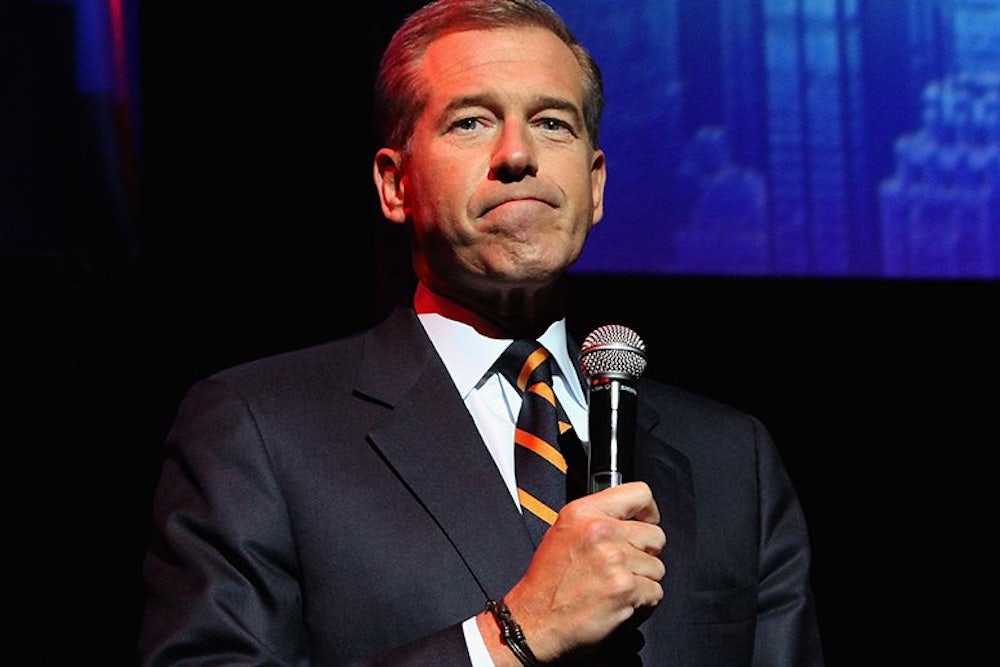NBC News anchor Brian Williams apologized on Wednesday for falsely claiming that he was on board a helicopter that was shot down in Iraq in 2003, blaming his story on “the fog of memory.” But pundits don’t seem to be buying it. “I think you would know if you were in a helicopter that was actually hit by a missile,” Rosie O’Donnell told the audience of The View. “‘Conflating’ the experience of taking incoming fire with the experience of not taking incoming fire seems verily impossible,” wrote Erik Wemple at The Washington Post. But scientists in the thorny field of memory research have a more nuanced view. I asked Lawrence Patihis, a psychologist researching memory at the University of California, Irvine, to weigh in.
Alice Robb: How common are false memories?
Lawrence Patihis: We don't know for sure how common false memories are in the real world, but we can approximate using experiments done in the lab. I suspect that no one is immune from memory distortion. Even people with superior memory seem to be susceptible to misleading information that is presented after the original event.
In one of our studies, about 20 percent of our participants generated false memories of an event when something false was suggested. [For instance, if Patihis mentioned video footage of Flight 93 crashing in Pennsylvania on September 11, one in five participants said they remembered seeing it. No such footage exists.] If we repeated the false suggestion many times over a period of weeks or months, I am sure an even larger percentage would develop a false memory.
In the case of Brian Williams, that misleading information may have been in the form of seeing the footage of him and his film crew examining the damage of the helicopter that was actually hit, and seeing it over and over again.
AR: Are we much more likely to misremember events that happened many years ago?
LP: When devising false memory studies, it's key to put a relatively large period of time between the original event and the misleading information, and a relatively short period of time between the presentation of misleading information and the memory test. This allows the memory of the original event to fade enough that it is very vulnerable to alteration by new, misleading information. In the case of Brian Williams, perhaps he revisited the news story many years after the 2003 incident, and perhaps the footage he saw was incorrectly woven into a new narrative of what happened.
AR: Are we more or less likely to misremember important or traumatic events (like being under fire)?
LP: This is a tricky question; it depends. It depends on whether the trauma triggered the kind of stress hormones that help encode memory, and it depends on whether you are trying to recall the central components of the event or the peripheral details. If the trauma elicits an adrenaline spike, then it is likely to strengthen the memory for the most important parts of the event: You are less likely to forget that it happened. However, peripheral details of traumatic events can sometimes be harder to recall. If you are held up at gunpoint, you might stare at the gun and not encode a memory of the perpetrator’s face. But you are unlikely to forget you were held up at gunpoint.
In the case of Brian Williams, the whole incident seems sufficiently arousing to encode a strong memory for the central details. It is up for debate whether we consider which helicopter he was in, out of the four involved, as a central detail or a peripheral detail. What confuses the matter even more is the fact that traumatic memories do fade, though less quickly than mundane ones.
We should take care before assuming deliberate deception here. As a memory researcher, I find it credible that Brian Williams had a genuine memory error. We all gradually change narratives about the past in a way that is not deliberate, but because we are under less scrutiny than national journalists, we never realize all the memory errors we make.
This interview has been edited and condensed.
